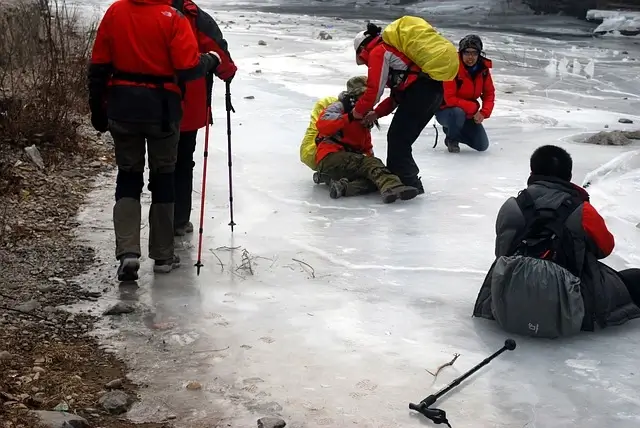Medical malpractice cases require a higher level of expertise from lawyers compared to other personal injury cases. They involve the use of medical experts to establish liability, which can be costly and intellectually challenging. Lawyers must represent or oppose highly educated physicians and simplify complex medical language for the jury. Thus, attorneys handling such cases must be poised and have a command of specialized scientific knowledge.
Medical malpractice law requires lawyers to have a deep understanding of a wide range of medical specialties, even though medical specialists work within narrow fields. To successfully represent clients in this field, lawyers must be able to compete with the defendant and defense experts during depositions or trials. Failure to do so can result in losing the case.
There are many types of Medical Negligence and Malpractice cases in New York City, including:
- obstetrical malpractice that results in life-long impairment to a newborn;
- failure to diagnose cases that results in the patient suffering devastating injuries including metastatic cancer, or similar, that otherwise could have been contained had the physician appropriately diagnosed;
- irreversible damage to an anatomical structure, such as a kidney or heart, which if picked up and addressed timely could have been reversed;
- failure to properly treat an impending stroke or heart attack;
- rapidly progressing kidney disease, or infection, that can be contained if timely detected;
- surgical errors; and
- failure to timely and properly address acute and reversible traumatic injuries (such as a subdural hematoma), which require prompt treatment.
In New York, malpractice is defined as professional negligence and medical malpractice is the negligence of a doctor. Negligence is the failure to use reasonable care under the circumstances, doing something that a reasonably prudent doctor would not do under the circumstances, or failing to do something that a reasonably prudent doctor would do under the circumstances. According to the Pattern Jury Instructions (2:150), Medical Malpractice is "a deviation or departure from accepted practice."
However, it is important to understand that malpractice is a higher standard than ordinary negligence and as such, a physician does not guarantee a good result and just because there was a bad result to the patient, that, by itself does not establish malpractice.
Finally, because a medical malpractice claim must be commenced within two-and-a-half (2 1/2) years of the act, omission or failure complained of, it is important that you do not wait to meet with an attorney to discuss your options.
It is always advisable to consult with an attorney if you suspect your injury was caused due to medical malpractice or medical negligence. Some general steps you should consider after being injured are:
1. Seek medical attention: If you are not presently receiving medical attention for what you suspect might be medical negligence or medical malpractice related, do so immedicately. Your health and safety should be your top priority. This will ensure that your injuries are documented and treated promptly, which can be crucial for your recovery.
2. Obtain any evidence: Get copies of all medical records, such as medical tests and their results, and all prior and subsequent medical records including prescription information. You are entitled to a copy of your medical records upon request for a reasonable fee, whereas a third-party (such as an attorney) requesting the same records will be charged .75 per page. Medical records are required prior to starting any medical negligence or medical malpractice case in New York.
3. Preserve evidence: Keep any evidence related to the incident, receipts for expenses incurred due to the malpractice, and keep a journal or log of the events. This will be important when making a claim for damages.
4. Consult with an attorney: Speak with an experienced medical negligence and medical malpractice attorney. They will help you understand your legal rights and options and will as guide you through the process of pursuing a claim. Many attorneys offer a free initial consultation, as we do, and will work on a contingency fee basis, meaning you won't have to pay any fees unless they successfully recover compensation on your behalf. It's important to act quickly because you only have two-and-a-half (2 1/2) years from the act or omission to bring a medical malpractice claim in New York. In addition, if the treatment occurred at a New York City Health & Hospitals Corp. (NYCH&H) Hospital, you must file a claim within 90 days of the incident and must begin the lawsuit within one year and 90 days against NYCH&H.
5. Follow your medical treatment plan: It's important to follow your doctor's recommendations for treatment and attend any follow-up appointments. This will not only help with your recovery but also demonstrate the seriousness of your injuries and your commitment to getting better.
6. Limit communication with potentially responsible parties: Although it might be impossible to avoid discussing your medical needs with a suspected responsible party when it is your treating doctor, do avoid discussing the details of the accident or your injuries with their insurance company, or their attorney. Any statements you make could potentially be used against you. Direct any communication to your attorney, who can handle these conversations on your behalf.
7. Be cautious with social media: Avoid posting about the accident or your injuries on social media, as these posts can potentially be used against you in your claim.
8. Look for support in choosing the best attorney: When you decide to set up a meeting with an attorney to discuss your options, make sure the attorney takes time to explain the process. This is your opportunity to ask questions and for the attorney to demonstrate knowledge of the subject matter, confidence in dealing with the issues and experience in managing similar cases. If you feel more comfortable, bring friends or other relatives with you to the initial meeting to assist with providing support.
Remember that this is general guidance, and the specific steps you should take will depend on your individual circumstances. Always consult with a legal professional for advice tailored to your situation.





